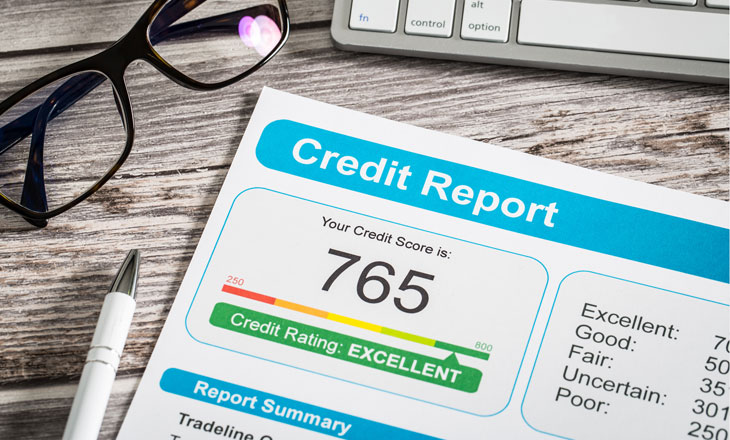Not a Member? Join us today!
It's easy to join! Apply for your lifetime Membership with iTHINK Financial in about 10 minutes.
MEET WITH US ON YOUR TIME
Schedule an in-branch or phone appointment at a time convenient for you.
Featured Products
You can turn to iTHINK Financial for the right solutions to all of your financial needs!
How is My Credit Score Calculated?
By: iTHINK Financial | Jan 18, 2016

According to Experian, the five factors that are considered when calculating a credit score are:
- Pay History: 35%
- Amounts Owed: 30%
- Length of Credit History: 15%
- New Credit: 10%
- Types of Credit: 10%
The credit score is based on all of the above factors – both positive and negative. The score does not consider ethnicity, religion, gender, marital status or nationality.
Pay History: 35%
A credit score takes into account:
- Payment information on many types of accounts
- Public record and collection items
- Details on late or missed payments and public record and collection items
- Specifically, how late they were, how much was owed, how recently they occurred and how many there are
- How many accounts show no late payments
Remember pay history is only part of the score so while late payments are a negative, one or two mixed into an overall good credit picture will not hurt the score. Similarly, having no late payments does not guarantee a perfect score.
Amounts Owed: 30%
Having credit accounts and owing money on them does not mean a consumer is a high-risk borrower with a low score. However, owing a great deal of money on many accounts can indicate that a person is overextended, and is more likely to make some payments late or not at all. Part of the science of scoring is determining how much is too much for a given credit profile.
A credit score takes into account:
- The amount owed on all accounts and on different types of accounts
- Whether you are showing a balance on certain types of accounts
- How many accounts have balances
- How much of the total credit line is being used on credit cards and other revolving accounts
- How much of installment loan accounts is still owed, compared with original loan amounts
Length of Credit History: 15%
In general, a longer credit history will increase a score; however, consumers with shorter credit histories may still get high scores depending on the how the rest of the credit report looks.
The score takes into account:
- How long credit accounts have been established. The score considers both the age of the oldest account and an average of all accounts
- How long specific credit accounts have been established
- How long it has been since certain accounts were used
New Credit: 10%
The credit score formula distinguishes between searching for many new credit accounts and rate shopping, which is generally not associated with higher risk. In part, this is handled by treating a grouping of inquiries – which probably represents a search for the best rate on a single loan – as though it was a single inquiry.
The score takes into account:
- How many new accounts you have
- How long it has been since you opened a new account
- How many recent request for credit you have made, as indicated by inquiries to the credit reporting agencies
- Length of time since credit report inquiries were made by lenders
- Whether you have a good recent credit history, following past payment problems
Types of Credit in Use: 10%
The score will take into account the mix of credit cards, retail accounts, installment loans, finance company accounts and mortgage loans. It is not necessary to have one of each, and it is not a good idea to open credit accounts you don’t intend to use. The credit mix usually won’t be a key factor in determining your score – but it will be more important if a credit report does not have a lot of other information on which to base a score.
The score takes into account:
- What kind of credit accounts you have, and how many of each
- Total number of accounts you have (depending on your credit profile, how many is too many will vary)
A credit score is always changing and is newly derived each time a credit report is pulled.
Upcoming Events
Check out the upcoming events happening at iTHINK Financial.
Quick Pay and Skip-A-Pay
Make a loan payment or skip your upcoming loan payment without logging in to Online Banking!





